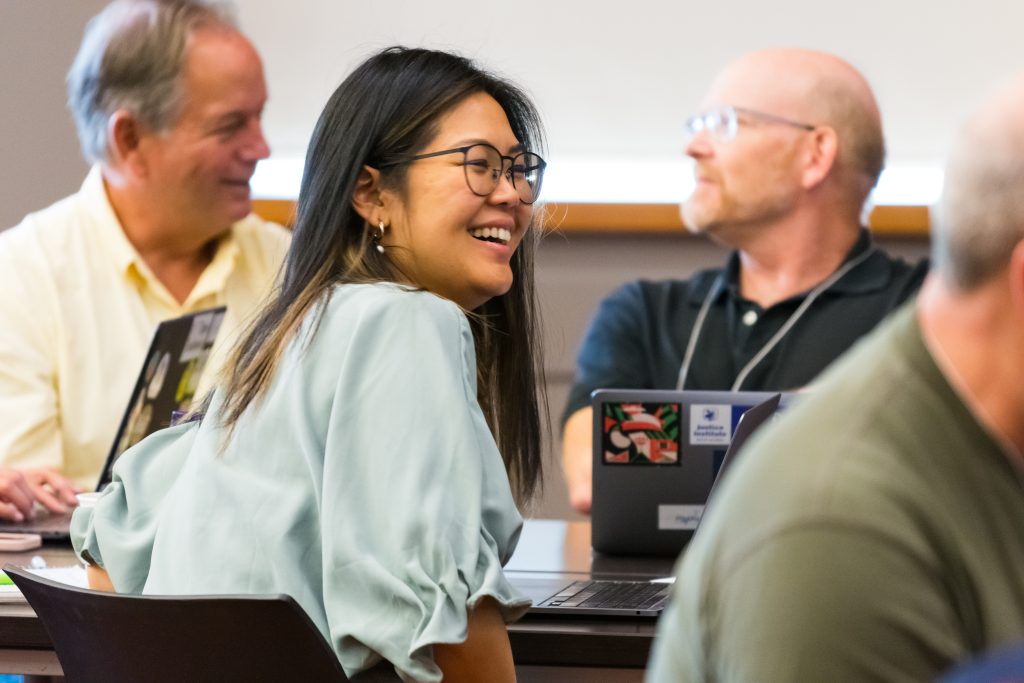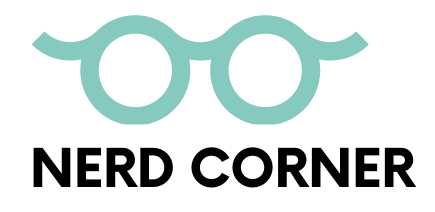
Who Needs Digital Literacy?
Junsong shares with us what it means to be a “digital native” and why we need to support our digital literacy in BC and at the JIBC.

June 2023 Vol.2 Issue 8
We want to recognize that we are approaching the end of June, during which time we have been celebrating Indigenous History Month at JIBC. Amidst our ongoing need to stay current with the newest developments, Indigenous History Month reminds us of the importance of remembering, reflecting, and honouring those peoples who have lived on these lands for thousands of years and who have carried on with traditions and practices to help us live better lives. We can consider the staying power of ancient wisdoms and the benefits of staying connected to the ground beneath our feet….and out of the clouds (and the Cloud!). As we continue to learn and adapt to our world, let’s not abandon the wisdom of our Elders or forget the many lessons of the past both good and bad. Remembering is as important to our success in the modern world as adapting and innovating. We are also at the beginning of Pride Season, yet another reminder that we are constantly learning about ourselves and each other and the need to think critically about our past while imagining and working towards a better, more inclusive future.
Learning from our past, thinking about the future…Our focus this month is Digital Literacy, which is nothing new, exactly, though it is time we took stock. Digital and online learning have been around for a long time and anyone working in training and education has experienced vast change over the past few decades. We’ve been learning, adapting, and re-imagining our practices so much, and so regularly, that we recognize change as our only reliable constant. Yet we find ourselves in a digital world of multiple realities. For example, while some people turn to social media for engagement and excitement, finding themselves immersed in an existence that occupies a lot of time and space online, others are just on the point of its discovery and are finding themselves alternatively bemused and intrigued by the possibilities. And yet, in the meantime, many are giving up social media because of its deleterious effects having concluded that a life offline offers better returns. Never mind the impact of COVID-19, when suddenly everyone found themselves working and socializing only online. So where does everyone fit in throughout this landscape? How do we manage our professional lives in careers that require familiarity and skill in navigating such worlds, particularly when we look through the lens of education and training?
The province of BC has attempted to provide some guidance to help guide educators, students, and citizens broadly about their roles and responsibilities when it comes to digital environments. The result of this thinking is the Digital Literacy Framework, which starts with a working definition of digital literacy:
“Digital Literacy is the interest, attitude and ability of individuals to use digital technology and communication tools appropriately to access, manage, integrate, analyze and evaluate information, construct new knowledge, and create and communicate with others.”
Digital Literacy Framework
Access, manage, integrate, analyze and evaluate. That looks like a definition that got caught in a Bloom’s Taxonomy blender. So, we’re using this issue of the Learning Hub to help our community build a foundation of knowledge around digital literacy. As educators, we have a responsibility to develop a common understanding of our expected skill set, both for ourselves and our learners, so that we can function capably in digital environments and give our students the best possible learning experiences. We are using this space to give you an introduction to digital literacy, from both personal and institutional perspectives, as well as a look at what’s going on in the educational community.
Have a look and tell us what you think.

Land Acknowledgement
We would like to acknowledge that we work from the New Westminister campus, which is located on the unceded and traditional territories of the Qiqéyt (Qayqayt), xʷməθkʷəy̓əm (Musqueam) and Coast Salish Peoples. This is a land where the river meets the great sea and the mountains overlook the vast and fertile valleys. This is a land of confluence and crossovers, connecting people, cultures, and ideas. We are grateful to learn about the history of these lands and to join in new traditions.
Coffee with Dave!
Let’s talk about all things teaching, learning and faculty development. Fridays on demand. Let me know you’re coming and I will open the door!
Our weekly drop-ins will be taking a break through the months of July & August. Need help? Not to fret, make an appointment to get one-on-one help!
Let’s compliment this issue with some music, shall we? We’ve curated a playlist called Our Futures with Technology. Please enjoy the musical stylings of CTLI!
Listen to our newest episode of our Learning Hub Podcast. Dave invites SOCI-1100 instructor, Gerald Bent, to chat about how his experience has been from instructing in-person to pivoting online…and back again! We are so grateful to have Gerald as one of our great friends of CTLI. Thank you for sharing your experience with us and teaching us a few things a long the way.
Some takeaways that we talked about in our podcast:
- Indian Horse. (2018). Film based on the award-winning best-seller by Richard Wagamese. Directed by Stephen Campanelli.
- Wagamese, R. (2012). Indian Horse : A Novel. Milkweed Editions.
- Bones of Crows. 2022. Directed by Marie Clements.
- Walker, C. (2022). Stolen. Season 2: Surviving St Michaels. Spotify Podcast.

Junsong shares with us what it means to be a “digital native” and why we need to support our digital literacy in BC and at the JIBC.

Melanie give us a a little insight on where the province is at with Digital Literacy in BC, and what we’re up to at the JIBC to support this framework.

Helen shares with us what she learned from her attendance of the 2-day conference held by the Educational Technology Users Group (ETUG).

We’ve added to our resources section! Check out our page on Artificial Intelligence (AI). You will find Proactive Steps for Addressing AI in the Classroom, Communication on AI use, and teaching and learning resources.
The JIBC Library has created a LibGuide of help all of us learn more about Artificial Intelligence. Check out the Artificial Intelligence (AI): What is Artificial Intelligence (AI)? LibGuide.

Digital Literacy is basically about knowing how to use computers, the internet, and other digital tools in a smart and responsible way. Learn why it is important and what the JIBC library can do to help support your digital literacy development.
The library has compiled a LibGuide dedicated to all things digital literacy. Have a look!
CTLI Hosts a Talking Circle
As part of the Teaching & Learning Collaborative (TLC) series, CTLI is hosting a Talking Circle as an opportunity to participate in an Indigenous pedagogical approach to discuss what Indigenization means to each of us in the JIBC community. Want to learn more about the TLC? Check out our invitation.
Universal Design for Learning (UDL) Workshops
Save-the-Date! CTLI is offering a series of workshops to expand the application of UDL principles, specifically in the area of public safety.
INDC-1110: Essential Skills for Training & Facilitation
Our fall offering for INDC-1110 Essential Skills for Training & Facilitation is full! Interested in taking this course in the future? Email us to join our waitlist or to learn more about future offerings!
Do you enjoy reading the Learning Hub? Do you have any great ideas or advice for our upcoming issues? Reach out to our team, we’d love to hear from you and maybe you could be featured in a future Hub!
The Learning Hub is a production of the good folks at the Centre for Teaching, Learning, and Innovation (CTLI). We welcome ideas and suggestions for edition themes and ideas for articles. Contact us at ctli@jibc.ca.